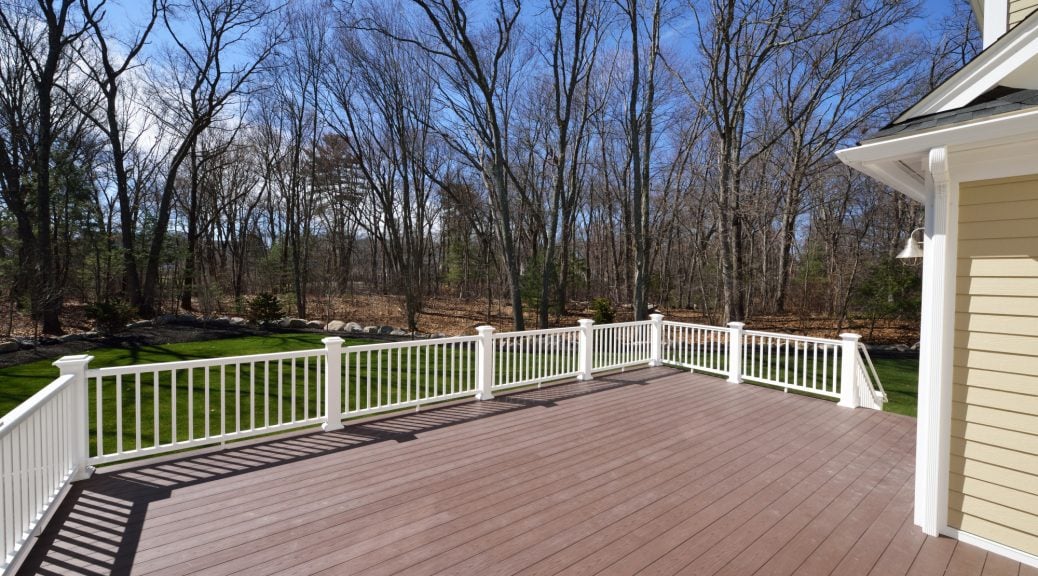Are you wondering, “How long do decks last?” Well, it’s a broad question that depends on a lot of different factors.
Lucky for you, we have a long list of answers that will explain everything. Here, in this guide, we compare various types of decking materials and how long they last on average. Plus, we include certain factors that may lengthen or limit the lifespan of your deck.
Whether you’re in the market for a new deck or you’re wondering about a deck you’ve already purchased, read through this guide for the answers you seek.
Solid Wood Decks
Most people in the market prefer the aesthetically pleasing look of a solid wood deck. What you may not realize is that most wood decking types (except for ipe) are the least durable of all decking materials. Thus, they also have the shortest expected lifespan.
Being a natural material, wood is biodegradable. In other words, it’s inherently designed to rot away once dead so that it won’t pile up in the forest like a landfill.
So, there’s a lot of care and maintenance required in order to make your wooden deck last a long time. First, it’s best if the wood is given special treatment to make it more resistant to weather, rot, bugs, and other causes of deterioration. With proper maintenance, most wood decks can last about 20 years.
However, the type of wood makes a big difference in lifespan, especially in the case of ipe. Here are a few examples of the longest-lasting wood decking types.
Cedar Decks
Cedar is the most popular choice for those who want a wood deck that will last a long time. Cedar is naturally resistant to many factors of deterioration. For example, cedarwood oil is a naturally-occurring pesticide.
But it will need to be kept very clean and you’ll have to seal it about every 2 years. Plus, it’s soft enough to be easily scratched by pets or patio furniture. Still, if you’re very careful and you rigorously follow the proper maintenance steps, you might get up to 40 years of use out of your cedar deck.
Ipe Decks
Ipe is one of the hardest woods available for decking. It is unlikely to ever get scratched by anything.
It’s also unlikely that you’ll ever find a longer-lasting deck. its extreme density and high concentration of natural preservatives allow it to last up to 75 years outdoors. Like any wood deck, it’s still important to seal ipe decking about every 2 years.
Pressure-Treated Wood Decks
Wood that’s artificially pressure-treated has a pretty good lifespan, about 20 years maximum. However, this type of wood is infamous for its tendency to warp and twist over time.
Factors That Affect the Lifespan of Your Wood Deck
Decks that stay under constant shade take a long time to dry any time they get wet. The constant moisture accelerates wear and can lead to mold growth and other problems.
This is also true of decks that sit directly on the soil. Soil also holds moisture for a long time.
On the other hand, an excess of sunlight on the deck tends to burn up the sealer much faster. If your deck gets lots of sun, you should seal it more often (once a year or more). But it’s best, for the lifespan of your deck, to prevent all of these situations, if possible.
Composite Decks
Unlike wood decks, composite decks require almost no maintenance. Sweep them and wash them with soap and water once in a while and that’s about it.
Being made of artificial substances, they’re not susceptible to natural decay. In fact, they’re intentionally engineered for that purpose.
That’s not to say that they’re indestructible or that they’ll never need replacing. It’s very possible to scuff or scratch your composite deck. Dragging heavy, metal furniture across the deck can do this.
Another common problem with composite decks is that their color can fade over time. Even worse, this problem can’t be fixed.
That is, paints and stains won’t adhere well to composite decking. If you try painting it, the paint will easily rub right off.
Ultimately, a composite deck will probably last about 30-50 years. And since it can be made to look like solid wood, composite decking is a popular choice as an alternative to wood decking.
Aluminum/Steel Decks
Metal decking, on the other hand, is not a very popular choice. Sure, it’ll last up to 60 years. But it’s very expensive and most people do not like the look of them.
Also, while aluminum is somewhat of an insulator, steel is not. Expect a steel deck to be oven-hot in the summer and ice-cold in the winter.
Still, if these factors don’t bother you, a metal deck will last you a very long time.
How Long Do Decks Last?
By now, you should have a thorough answer to the original question. Based on the decking material and other factors in this list, you can calculate how long your deck, or desired deck, will last. Also, use the information in this guide as advice on how to make your deck last longer.
Now that you have your answers, do you have any friends who’re wondering, “How long do decks last?” If so, please share this guide to help them out as well.
Lastly, if you still have any questions about deck longevity, we’re here to help. Contact us here to submit your questions, inquire about an order, or to request a quote.

